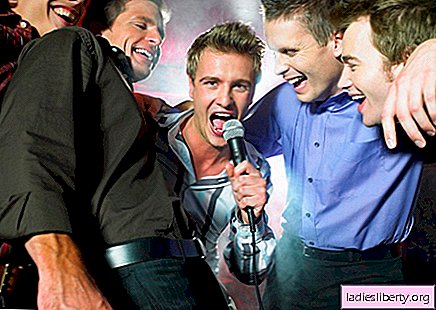
Holidays December 27
Day of the Savior of Russia
December 27, 1990, by Decree of the Council of Ministers of the RSFSR, the corps of rescuers of the Russian Federation was created. The day of approval of this decision is considered the founding date of the Ministry of Emergencies and is the Day of the rescuer. The creation of the Ministry of Emergencies was simply necessary, because the number of emergencies of a different nature was constantly growing. People suffered and died from them, material values were destroyed. Emergencies arise during collisions on transport routes and water surfaces, during fires and detonations in residential and social buildings, on main pipelines, during the release of highly hazardous chemical and highly radioactive substances, on sophisticated equipment of plants, factories, power plants, during detection and disposal unexploded ordnance shells, also during hurricanes, showers and snowfalls, floods and epidemics. The main work in the implementation of search and rescue operations is performed by rescuers of the Ministry of Emergencies. Always appear first where people need help, in the rubble in ruined buildings, in the fire of terrible fires, in flooded areas, as well as on highways in smashed vehicles. Rescuers are always on the alert and promptly respond if there is a signal to help people who are in trouble. EMERCOM rescuers conducted an incredible number of search and rescue operations, saved tens of thousands of lives, provided timely assistance to a large number of injured people.
Day of the employee of the passport and visa service of Kyrgyzstan
Passport and visa regulation in Kyrgyzstan is carried out by a special department, the Department of Passport and Visa Supervision under the Ministry of Internal Affairs of Kyrgyzstan. In 2007, the DPVK service turned 75 years old. On December 27, 1932, the Central Executive Committee of the Council of People's Commissars of the USSR decided on the introduction of a unified passport system throughout the country, with a registration mark. This decision became the basis for the establishment of a holiday passport service. In 2000, the passport and visa department was transformed into management, and in 2006 into the passport and visa supervision department, according to the Decree of the President of Kyrgyzstan. The department consists of 95 divisions, the staff - 255 people. The main objective of the DPWC is the regulation of migration processes, control of passport, visa and border regimes. The fight against smuggling and the protection of the rights and freedoms of citizens crossing the border.
Day of the Apostle and Evangelist John
The Evangelist John is the author of one of the gospels of Jesus Christ. He was the son of the daughter of the holy betrothed Joseph. Jesus called him to his disciples on Lake Genisaret. John left his father alone in the boat, and together with his sibling, he followed Christ. The Lord loved John very much, because he was a virgin, pure and kind man. John, after his calling, did not part with Christ, and was one of three worthy disciples, especially those close to him by the Lord. Being on the cross, Jesus instructed John, taking care of the virgin Mary. If we read the Revelation of St. John the Evangelist, we will see lines about four animals that are constantly at the throne of the Lord in heaven and constantly sing the praises of God. These animals have faces like humans, but they look like a bull, a lion and an eagle. Based on this, each of the Evangelists in the Christian tradition was assigned its own symbol, which is often depicted in paintings. The apostle John received the symbol of the eagle. According to established tradition, the Day of this apostle and evangelist is celebrated in Orthodox, in some Protestant and Lutheran churches.
December 27 on the folk calendar
Filimonov day
On this day, people celebrated the memory of the holy martyrs Philemon, Apollonius, and Ariana, who suffered for the faith and lived in Egypt during the reign of Emperor Diocletian. According to legend, during the time of persecution, frightened by suffering, the Christian Apollonius asked the pagan Philemon to change into his clothes and offer a sacrifice to idols. But Philemon unexpectedly declared that he himself believes in Christ. After this, Apollonius repented heartily and began to openly practice his faith. Later, these saints were terribly tortured and executed. As a pagan, Arian took part in the torment of Christians. A little later, he felt the pangs of conscience and was baptized, and not alone, but with his bodyguards. They were all put to death by the Gentiles for their apostasy from the faith. Filimonov’s day was the darkest of the year. In ancient times, people believed, until darkness leaves the earth, unclean forces will rage. According to legend, undead, echidna and bats crawl close to houses on this day, scrape themselves at doors, groan and scare people. However, the good masters, who have cleanliness and order in the house, evil spirits bypassed and did not touch. Life took its course, the days gradually became longer and brighter.
The peasants on this day said that winter took a piece from night and added to the day. On this day they predicted what the weather would be like in the month of February. They also believed that if the day is frosty, then there will be a hot summer. If the snow melted and the wind blew, the peasants were sure that a rich harvest awaited them next year. People noticed if during this day the weather changed several times, then during the winter there will be many thaws.
Historical events December 27
1932 year the introduction of a Soviet passport
On this day, the Decree of the CEC of the USSR on the introduction of a unified passport system in the Soviet Union, with mandatory registration at the place of registration, was approved. According to the then existing system, passports could be obtained by residents of cities, urban settlements, regional centers, as well as the population of Moscow and Leningrad regions. Military personnel (during the period of serving military service), people with disabilities and rural residents (collective farmers) did not have the right to obtain a passport. Moreover, the latter could get a passport only in exceptional cases and with the special permission of the authorities. All this resembled the serf system that existed in the tsarist period. It is noteworthy that after the 1917 revolution, the Bolsheviks canceled the passport system as a relic of the tsarist regime. However, under Stalinist rule, passports were reintroduced to better control the population. The first Russian passports in history were the so-called "travel letters", which were issued not to serfs in the empire. At the beginning of the nineteenth century, passports began to be issued in printed form, and by the end of the century, the passport of the Russian Empire began to look more like a modern version.
1929 proclamation of the policy of "collectivization"
After the 1917 revolution, the Bolshevik authorities faced difficulties in providing the population with food. Punitive measures against "kulak farms" did not lead to a change in the situation in the direction of improving food supply. In different parts of the young state, centers of hunger flashed every now and then. The practice of war communism and terror in relation to the stratum of prosperous peasants completely discredited themselves and showed the inconsistency of the communist idea. Fearing hunger riots and popular unrest, the Bolsheviks made some concessions and announced the introduction of the NEP program. The new economic policy was designed to calm the masses, give the "fists" a kind of respite and solve the problem of the food crisis. During the existence of the "NEP" (1921 - 1928), the economy began to gradually revive, the number of "kulak farms" increased significantly. By the end of the 1920s, there were about a million of them. But with the growth of prosperous peasant farms, the pressure on these farms from the Soviet government also increased. The government levied such exorbitant taxes exorbitant taxes, as a result of which the "fists" began to refuse to sell bread to the state at preferential prices. The response of the Soviet leadership was a complete violent collectivization and the declaration of wealthy peasants as enemies of the people - "fists". Property, bread, and cattle were taken away from the peasants by force, and they themselves were sent to Siberia together with their families. Those who disagree or resist are repressed. Collectivization caused irreparable damage to both the national economy and the socio-cultural heritage.
537 year Orthodox church of Hagia Sophia consecrated in Constantinople
The temple was erected in the middle of the 4th century AD, in honor of the triumph of the Christian faith in the new Roman Empire, founded by the great emperor, Constantine. An Orthodox shrine was built for several decades, so that then it would be burned down in one moment. Dozens of years passed before the temple was rebuilt, on the initiative of Emperor Theodosius II and in 415 a new basilica was ready. However, this temple befell the fate of the previous structure. The temple burned down during one of the many popular uprisings against the imperial power. Emperor Justinian I ordered the restoration of the ancient shrine and not just build a new church, but to erect a grandiose church structure that would have no analogues in the whole world. The best architects and builders of the ancient world gathered in Constantinople at the call of the emperor. Justinian himself laid the first stone in the foundation of the cathedral and strictly watched the construction. The construction of such a magnificent building cost the state very expensive and took almost three annual budgets of the country. Upon completion of construction, the building reached a height of 55 meters and was at that time a record. In addition, a huge dome with a diameter of 31 meters was erected on the basis of the cathedral. For almost one and a half thousand years, the cathedral stands on the holy land and is the greatest symbol of the Christian world.
1990 year creation of the Russian rescue corps
The newly formed service was called, first of all, to save people in technological disasters. Given the special geographical location of Russia, and the high concentration of hazardous production on its territory, both natural and man-made disasters often arise here, in connection with which the country urgently needs a special service to eliminate the consequences of man-made disasters. The decree establishing the new service was published on December 27, 1990. The new department was to not only eliminate the consequences of technological disasters, but also be able to predict and prevent them. Headed the new organization, Sergei Shoigu, who now leads the rescue corps. The new state body was repeatedly transformed and reformed until in 1994, the Ministry of Emergency Situations of the Russian Federation was created. EMERCOM employees work almost around the clock and in emergency mode; they are the first to come to the aid of victims of various natural and man-made disasters. Since 1995, the decision of the Government of the Russian Federation marks the Day of Russian Savior.
1979 year storming the presidential palace in Kabul
The secret operation of the Soviet special services in Afghanistan, aimed at overthrowing the regime of President Amin. The reason for the deposition of Hafizullah Amin was the disturbing events in Afghanistan. The Soviet leadership was frightened by Amin's indefinite foreign policy and the dictator's repressive domestic policy. The country was on the verge of a socio-economic catastrophe; in the country, one armed uprising broke out after another. In addition, there was reliable information about the close cooperation of Hafizullah Amin with the CIA, and the USSR could not allow this, because it could turn Afghanistan into the sphere of influence of the United States. Amin defiantly pursued an independent policy directed against the Soviet Union. The Soviet leadership feared that Amin would take the side of the United States, and even worse would allow Afghanistan to be turned into an American military base. However, any, even the most weighty arguments, do not justify the criminal decision of the Soviet leadership to interfere in the affairs of another state and even more so the murder of the leader of this state. The first attempt to eliminate Amin failed, the president’s entourage promptly responded to the attempted assassination and saved Amin from poisoning. The second time they decided not to risk it and decided to openly storm the residence. The assault on the presidential palace began on December 27 at 19.30, shortly before the KGB special forces had carried out a lot of preparatory work to demoralize telephone and radio communications, the palace was disconnected from the power supply. With heavy fighting, the Soviet special group broke into the palace, the resistance was fierce, each floor was at a great price. As a result of the operation, 10 KGB officers and 9 paratroopers died, and the commander of the operation, Colonel Boyarinov, also died. From the enemy’s side, President Amin and his two young sons, as well as more than two hundred guards, were killed. The new president of Afghanistan was B. Karmal, a protege of the USSR. However, this did not bring the long-awaited peace to the land of Afghanistan. Following the overthrow of Amin, Soviet enthralment into the country followed.
December 27 were born:
Gerard Depardieu (1948), French actor
Gerard was the third child in the family, during the economic crisis, the Depardieu family lived very poorly, but, despite this, three more children appeared in the family. At school, Gerard did not get high grades, parents did not pay attention to children at all. Since childhood, the guy was uncommunicative, he began to stutter. He spent most of his time at an American military base that was established in his hometown. Gerard remained at school for the second year, he was not at all interested in his studies. But he still finished school and received a certificate of completion. Having hardly finished school, Gerard began boxing classes, and at the same time worked as a typesetter in a printing house. Later came under police surveillance, was registered for contacting a gang that was engaged in thefts. Acting skills Gerard became interested in quite by accident. Together with his friend, who attended acting classes, Gerard went to Paris, and went with him out of boredom for company with a friend. There, the teacher asked him to participate in the sketch and Gerard became interested in acting. About a year later, Depardieu decided to enter the school of the famous professor Jean-Lauren Caucher. The guy was so interested in the professor that he was accepted to school, despite the fact that he stuttered. Caucher paid for the treatment of a guy at a speech therapist, thanks to which Gerard's speech became clear. Not even a year had passed before the light of the first film by Gerard Depardieu, entitled “Hipster and Young Lady,” was released. During the training with Kosh, the guy changed a lot, he worked hard, became diligent, attentive, and established himself as a wonderful actor. In 1968, Gerard met with an aristocratic artist, who a couple of years later became his wife, and bore him four children. Gerard Depardieu is a diverse actor, he plays both comedic and dramatic, or melodramatic roles. He plays his every role brilliantly, his characters remain forever in the memory of the audience.
Bohdan Khmelnytsky (1595 -1657), the great Ukrainian Getman
December 27, 1595 was born Zinovy Khmelnitsky. The alleged birthplace is the Subotov farm in the Poltava region. For that time, the boy received an excellent education, spoke several foreign languages. From his youth, he showed piety and a desire to be a parishioner exclusively of the Orthodox Church.At a young age he took part in the Polish-Turkish war, as part of Cossack units. He was captured, a year later he returned to his homeland and began to participate in sea voyages of the Cossacks against the Turks. Later he was in the service of the Polish king and as part of the gentry troops he participated in military operations against the Russian army. Khmelnitsky showed great respect and devotion to the Polish crown, however, the insult inflicted by the nobleman Chaplinsky to the hetman's family restored him against everything Polish. Not finding justice in the courts and in royal power, Khmelnitsky began to search for the truth in Zaporozhye. In April 1648, relying on the support of the Tatar army, Bogdan called the Cossacks to rebellion. Then the Zaporozhye army proclaimed Bogdan Khmelnitsky hetman of Ukraine. The Cossack army of Khmelnitsky won many victories over the Poles, and almost got to Warsaw. Frightened by the scale of the uprising, the Polish king offered the Cossacks peace, and Bogdan hetman, secured by the royal seal. Khmelnitsky rejected the offer of the king and turned his eyes to the Moscow people. However, the hetman’s desire to surrender Ukraine to the patronage of the Moscow sovereign was generally perceived ambiguously, and later was strongly condemned by many.
Louis Pasteur (1822-1895), distinguished biologist, immunologist and chemist
An outstanding French biologist was born on December 27, 1822 in France, in the city of Dol. After successfully graduating from college, Louis enters the university, where he studies chemistry, physics and biology with great enthusiasm. Already a student, he makes his first discovery, discovering the asymmetry of molecules, this discovery the scientist discovered a new direction in chemistry - stereochemistry. Pasteur successfully defended the title of Doctor of Physics and began to teach. Louis Pasteur found that the cause of fermentation is not in chemical reactions, but in the activity of microscopic organisms - yeast fungi. Thanks to his research, Pasteur learned to treat diseases of grapes and wine, for the disinfection of wine, Louis proposed to heat, without bringing it to a boil a little. In the future, this process will be named after the great scientist - pasteurization. Further efforts in his research, Pasteur directed to the search for means of combating especially dangerous diseases, anthrax, rabies, rubella and others. The scientist found out that if a sick person is injected with dead or weakened microorganisms, then he develops specific immunity and in most cases the patient recovers. If vaccination is carried out for the purpose of prevention, then a person does not get a certain disease at all, or is ill in a mild form. At the end of his life, Louis Pasteur headed the Institute of Microbiological Research, in which he worked until the end of his life.
Marlene Dietrich (1901-1992), German-American film actress
The future actress was born in the vicinity of Berlin, in a military family. From childhood she showed acting abilities, participated in school productions and concerts. She played the piano and violin. From her youth she began performing in a cabaret, and in 1922 she first appeared in films. In 1924, she married Rudolf Cyber, but the marriage was more formal. After a series of filming in silent films, in 1930 Marlene first appeared in the sound film "Blue Angel" and immediately became famous. After filming the Blue Angel, the actress flies to America to conquer Hollywood. There she starred in the film "Morocco" and again recognition and success. Soon, Dietrich became the most expensive actress in the history of Hollywood, of that time. The actress starred in the popular "Shanghai Express" and in "Blonde Venus", in these films, the actress with amazing naturalness played women of easy virtue. After a triumph in Hollywood, Marlene returns to Europe and starred in a number of not very noticeable films. After the war, the actress plunged into the work with renewed vigor and since 1945, films with her participation are released annually. The last film in which Dietrich starred in the title role was shown in 1961. After which the actress mainly played in theatrical productions. The last years of her life, the actress was bedridden due to a complex fracture of her leg.
Sergey Bodrov (1971-2002), actor and director
Sergey Bodrov was born in the family of a famous director. For the first time, Sergei starred in a movie with his father, director Sergei Bodrov, in the film "Freedom is Paradise." It was a small role and a short episode, but in the life of the future actor it was a very important step. In 1995, Sergei’s father went to the Caucasus to shoot his new film, “Prisoner of the Caucasus,” his son went on the road as an excursion, his participation in the film was not mentioned. But the father decided to try his son in one of the main roles, and Sergey uniquely managed to play her. After trying out the movies, Sergei is invited to work on Channel One, as the host of the program, “Sight”. The cult picture for Sergei Bodrov becomes the film "Brother", for the role in which the actor receives a prize from the Chicago Film Festival. Further, the actor starred in the films: "Striger", "Brother-2", "East-West" and tries himself as a director in the film "Sisters". When filming his next film, in the mountains of North Ossetia, a film crew covers the glacier and more than a hundred people fall into the ice trap, from which no one got out.
Name day on December 27th:
Leonid, Evdokia, Philemon, Ivan, Jean, Caesar











